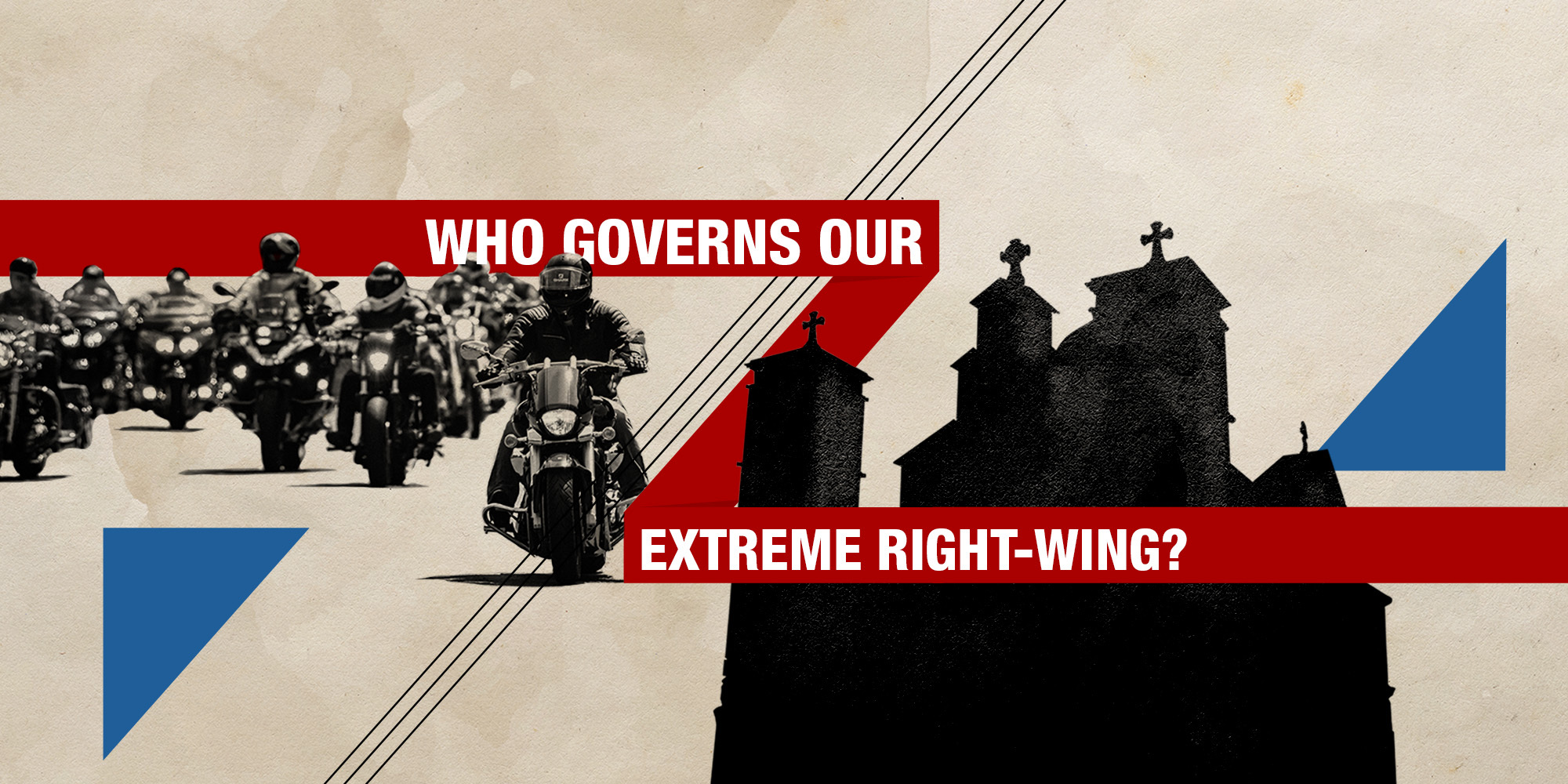Dilemmas about the activities of the extreme right-wing in Montenegro have come to the fore lately, in parallel with the profound political, social, identity, and cultural crisis which marked the last two years after the 2020 parliamentary elections. Although sporadic and insufficiently scientifically based, considerations on this topic offered different thoughts and conclusions. They range from the premise that Montenegro has been living its state life for years between two ethnopolitical extremes that embody Serbian and Montenegrin nationalism to a lament that can be heard more and more often in the public space due to the absence of political articulation that would have a right-wing Montenegrin character.
The emergence of the extreme right-wing and right-wing ideology in Montenegro is a direct reflection of the disintegration of Yugoslavia and the changes that followed the dismantling of the joint socialist state and has been connected with the process of radicalization of the environment in Serbia from the beginning. The idea of creating a greater Serbia and the wars that were waged in that name in the nineties of the last century has been, in the meantime, modified by the rehabilitated, currently ruling Serbian parties that were the bearers of the war policy and had its ideological expression through advocacy for the creation of a Serbian world, which represents a reinterpretation of the concept of the Russian world (Russkiy Mir).
The ideology of the right-wing implies the ethnic homogenization of the Serbian people in Serbia, Bosnia, and Herzegovina (the entity of the Republic of Srpska), Kosovo, and Montenegro – through the concept of protecting the interests of Serbs in the dispersion that is, the relativization of state and ethnic borders; anti-communism and denial of anti-fascism, promotion of traditional, essentially authoritarian values; uncritical glorification of Orthodoxy in the interpretation of the Serbian and Russian Orthodox churches; opposition to the concept of liberal democracy and multiculturalism represented by the decadent West; as well as intolerance towards minority social (LGBT) and ethnic groups.
The ideological and value framework for all pro-Serbian political subjects, organizations, and associations is provided by the Serbian Orthodox Church with its headquarters in Belgrade, which at the moment represents the only foreign policy instrument of Serbia, considering the fact that its religious jurisdiction extends beyond the Serbian state borders and covers the territory, from the aspect of the implementation of the Serbian world project, of particularly interesting areas in Montenegro, Bosnia and Herzegovina, and Kosovo.
The Serbian Orthodox Church has become a key factor that, to a significant extent, determines the activities of pro-Serbian political parties and organizations, and associations in Montenegro, affecting the change in the character of society from civil into theocratic, with the destruction of the social system and rehabilitation of patriarchal, provincial culture.
The increased intensity of Russian soft power in Montenegro came to the fore, especially after the NATO membership invitation in 2015, and was noticeable through the actions of certain political subjects, non-government organizations, media, civil activists, and individuals whose political and ideological concept is based on advocating the change of the strategic course of the country and its displacement from the western to the eastern track. Even then, the Serbian Orthodox Church is asserted as a key proxy of Russian activities, which, with the appearance of grassroots conservative groups, opened the door to the abuse of religion and the formation, under the auspices of the SOC and with the active participation of certain priests of this religious organization, of new patriotic and humanitarian organizations and associations with strong national -Serbian and religious identity.
Such associations were established according to the pattern of already established similar organizations in Serbia, which have undergone numerous transformations since 2000, from bans and prosecutions to the legalization of their activities within political parties with parliamentary status. SOC does not even hide its connections with such associations. A significant number of those organizations in Montenegro and the region are hiding behind humanitarian work, trying to soften their image through social networks for them to be socially accepted – like the Sveti Georgije organization from Bosnia and Herzegovina, which is partly financed by the Russian embassy, and which was active during the religious processions in Montenegro. At first glance, some of them seem humanitarian, but when you look at their attitudes and activities being contextualized, their underlying agenda based on right-wing ideology, militaristic spirit, and loyalty to Russia are revealed.
You can download the analysis with conclusions and recommendations at THIS LINK.

